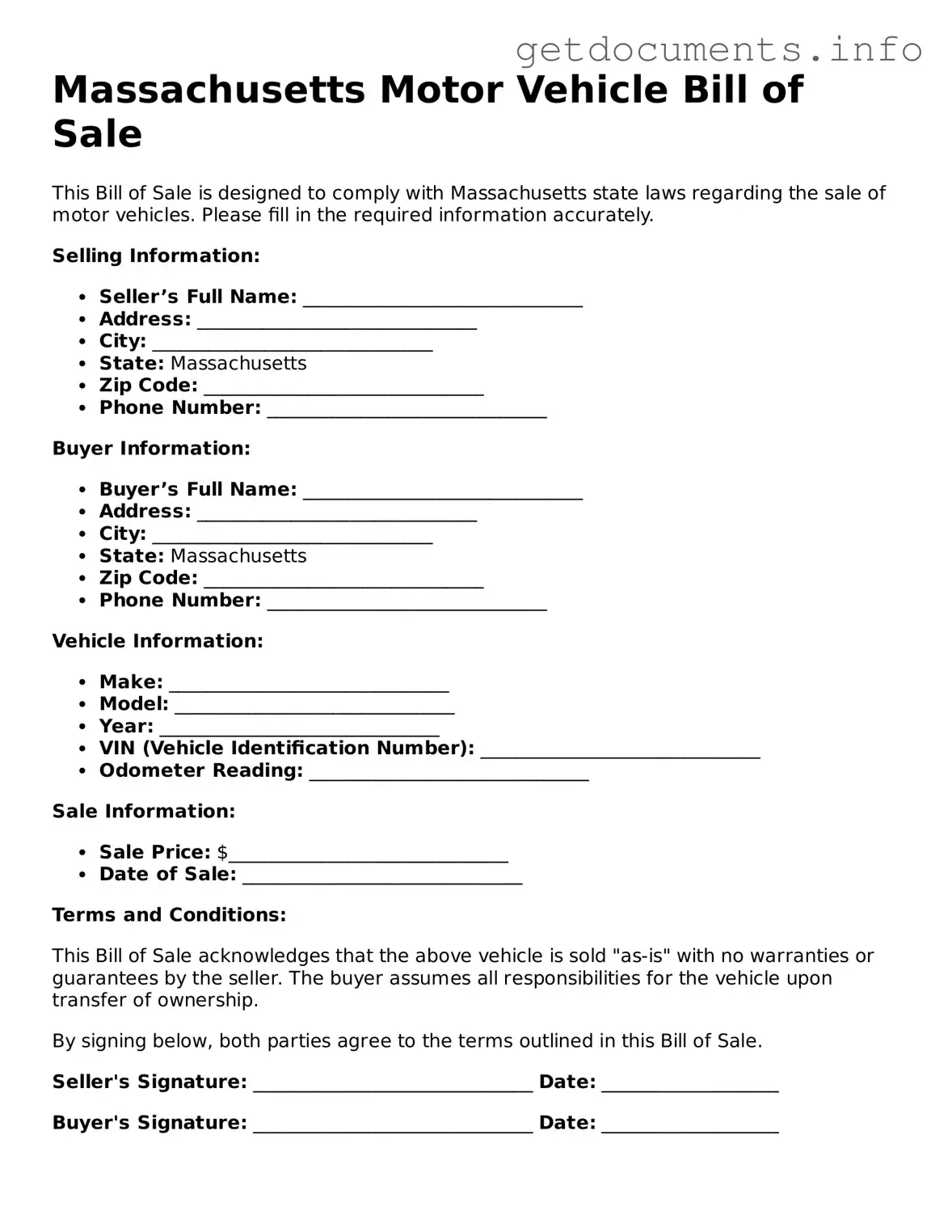Free Motor Vehicle Bill of Sale Template for Massachusetts
The Massachusetts Motor Vehicle Bill of Sale form is a crucial document used when transferring ownership of a vehicle from one party to another. This form provides essential details about the vehicle and the transaction, ensuring both parties have a clear record of the sale. To facilitate a smooth transfer, it’s important to fill out this form accurately.
Get started by filling out the form by clicking the button below.
Access Motor Vehicle Bill of Sale Editor

Free Motor Vehicle Bill of Sale Template for Massachusetts
Access Motor Vehicle Bill of Sale Editor
Got places to be? Complete the form fast
Fill out Motor Vehicle Bill of Sale online and avoid printing or scanning.
Access Motor Vehicle Bill of Sale Editor
or
⇩ PDF File
